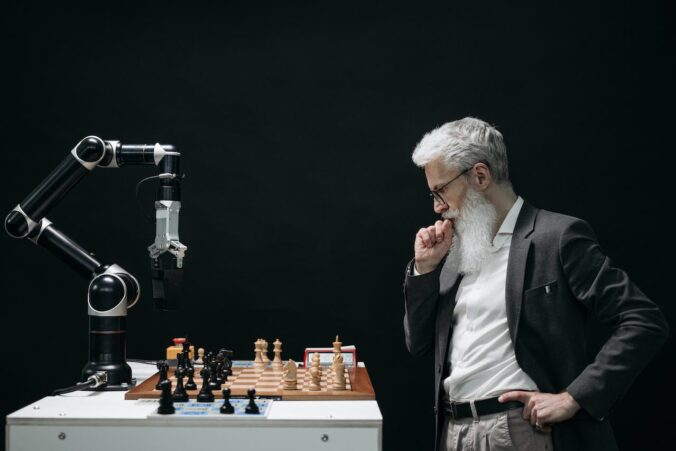Tall tales have an ongoing relevance, and the wisest man there ever was reminds us that there is nothing new under the sun. The tall tale of John Henry is as applicable today as ever.
John Henry went up against a steam-powered drilling machine in an epic contest. He beat the machine but lost his life. The practical implications have spanned the railroads and automation across industries, and now, we are in the modern era where artificial intelligence is at the forefront of our societal conversation.
A blogging champion may arise to go toe-to-toe with Chat GPT. Unfortunately, we’ve already seen the results of that match-up, and humanity cannot compete in producing content. However, there are more profound questions to ask than whether or not artificial intelligence can do things more efficiently.
Will our literature be reduced to zeroes and ones? Can artistic beauty and creativity be computed? What are the long-term effects of sidelining people in the creative process?
Imagine a hero named Gates Jeffreys rising to challenge artificial intelligence to a dual of creative wits. The AI has five articles written before Gates can finish brainstorming a topic. Yet those five articles are missing something. Make no mistake, there are no mistakes. There is also no heart. There are no subtle, intuitive turns of phrase that bring empathy through a written format because of personal experience.
Gates Jeffreys possesses the spark of inspiration that comes through the ebbs and flows of human existence. AI can try to replicate patterns that emulate, but it cannot have a gut instinct. So, while the algorithms generated blog content twelve times faster than Gates, he followed a hunch and wrote something entirely uncharacteristic of his usual style. That hunch led to something that the competition metrics wouldn’t measure: meaningful resonance on a personal level.
Gates’ single article reached someone who needed to hear his story, and they reached out to him. The shared experience brought healing and discussion of connecting with others facing the same issue. AI pumped out another slew of articles, but Gates’ impulsive decision to finally share his story led to a movement of healing.
The debate on artificial intelligence is just beginning. Many, much more knowledgeable about the topic than I, are making decisions that will shape our future. Nonetheless, there is another layer to the conversation, and I encourage all my fellow humans to keep writing, thinking, discussing, connecting, planning, painting, and performing. A coded program may do it more proficiently, but it cannot do it more “human.”
